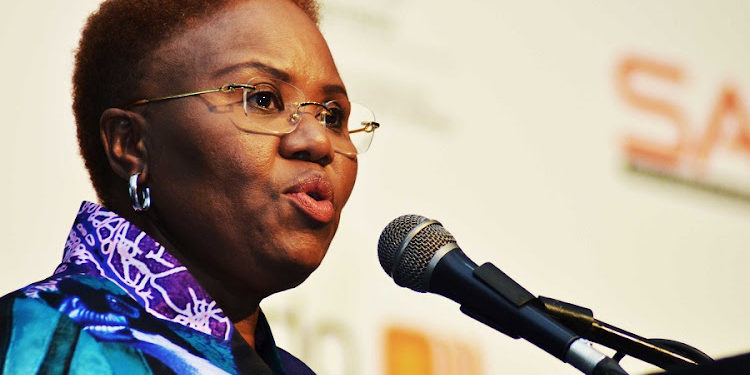Social development minister Lindiwe Zulu has congratulated social grant beneficiaries who wrote their final grade 12 exams amid disruptions, including Covid-19.
The minister said the results of social grant beneficiaries who wrote the 2022 examination showed an impressive increase in performance in 2021/2022 in all provinces. The overall increase was 8.7% compared with 0.2 % in 2020/2021.
She urged caregivers and parents to support matriculants who may not have done well by giving them a second chance.
“We want to take this opportunity to encourage the learners who did not pass to remain hopeful and not panic or give up on their dreams. It is during this period that families and friends should show support,” said Zulu.
She urged those whose results were not as good as expected not to give up as many opportunities are still available for them to succeed.
“Information, advice, and guidance on what to do next is available and I would urge the learners to use these opportunities fully to improve their results.”
“I also want to encourage parents to be supportive of their children as parental involvement has long been identified as having a clear and positive relationship to the success of young people regarding educational performance as well as protection from alcohol and drug abuse.”
Performance by province
Social grant beneficiaries in Gauteng achieved an 81.59% pass rate, followed by the Free State (76.19%), KwaZulu-Natal (75.73%), North West (74.19%), and the Northern Cape (71.23%).
The Eastern Cape achieved 68.66%, Mpumalanga 68.49%, and the Western Cape 68.49%. Limpopo was below the 60% threshold with 59.65%.
“This academic performance highlights the critical role that social protection and pro-poor interventions play in addressing intergenerational poverty and child wellbeing,” said Zulu.
The previous year saw more female social grant beneficiary pupils sit for their final exams at 256,902, compared with 191,490 males.
“These results prove that programmes that promote gender parity in performance, such as the sanitary dignity programme, are interventions which encourage the retention of girls in school as well as their attendance and performance,” said Zulu.
Zulu called on all provinces to offer support to matriculants, especially in rural and township areas.
Grant beneficiaries who applied and were accepted at tertiary institutions will not be means tested when applying for financial assistance with the National Student Financial Aid Scheme.
Source: TimesLIVE






 WhatsApp us
WhatsApp us 

